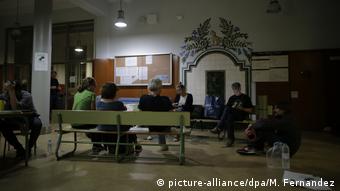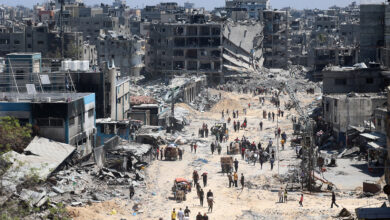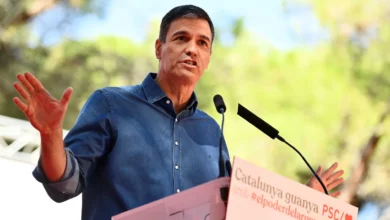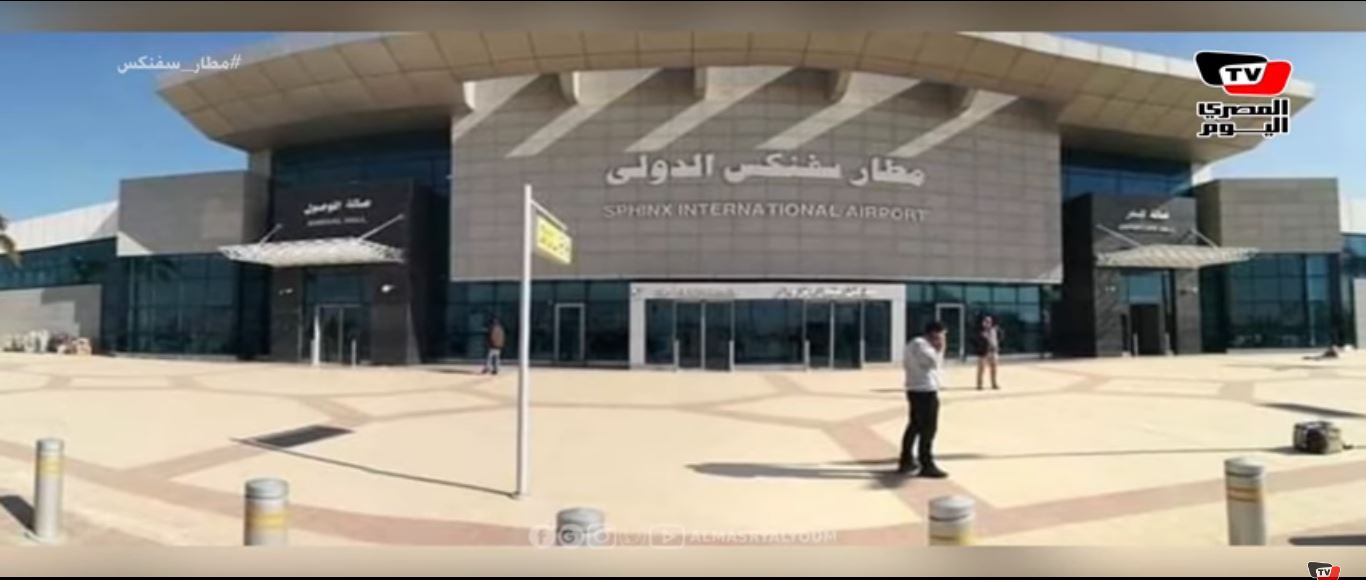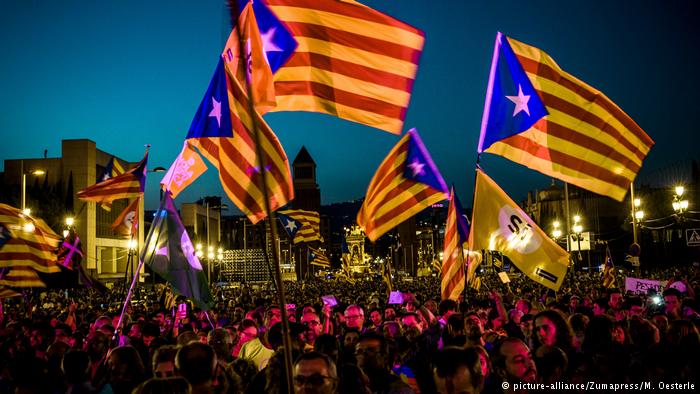
Independence supporters have started occupying designated polling places ahead of Sunday’s vote. Spain’s government, which has sent thousands of police to the region, insists the referendum will not take place.
Supporters of Catalan independence on Friday evening and Saturday morning occupied polling stations, setting the scene for possible confrontations with police.
Catalonia’s government said it had set up hundreds of polling stations across the northeastern region ahead of Sunday’s vote, despite Madrid declaring the vote illegal.
“Everything is prepared at the more than 2,000 voting points so they have ballot boxes and voting slips, and have everything people need to express their opinion,” Catalan leader Carles Puigdemont told Reuters news agency.
Spain’s central government, bolstered by a Constitutional Court ruling declaring the referendum invalid, has vowed to block the unauthorized poll.
“I insist that there will be no referendum on Oct. 1,” central government spokesman Inigo Mendez de Vigo told a news conference Friday. “Nobody is above the law and whoever violates them will face consequences.”
Spain’s constitution stipulates that only the federal government has the power to call a referendum on sovereignty.
On Friday, a judge at Catalonia’s High Court ordered Google to delete a smartphone application which the Catalan government was using to spread information about the vote. Websites linked to the independence movement have also been shut down and the electoral board set up to oversee the vote was dissolved. In recent days, police acting on judges’ orders have confiscated thousands of voting slips and arrested pro-independence officials.
The crackdown has led to hundreds of thousands of Catalans taking to the streets in protest, with more major demonstrations expected over the weekend in the regional capital, Barcelona. On Friday, farmers driving scores of tractors converged on the city in a show of support for the independence campaign.
Thousands of extra police have been deployed to Catalonia with orders to cordon off polling stations and block people from voting. Local security officials warned such measures could threaten public order.
At a press conference Friday, Catalan Vice President Oriol Junqueras said that if “someone closes a polling station, there is an alternative for citizens to vote,” without giving further details.
He also urged people to vote “responsibly” and “not to yield to provocations of those who want to stop the vote.”
On Friday, Germany’s Foreign Ministry urged its citizens in Catalonia to exercise caution and warned that an “escalation” of the situation was possible.
People prepared to camp out at the polling stations on Friday night and were in high spirits.
Several families were preparing to sleep out at one school in Barcelona.
“We want to make sure the school is open for activities and at night when they might come to clear us out or empty it, there will be families sleeping or people in the street,” Hector, a 43-year-old local told Reuters.
The occupations were partly organized by a platform of “schools open for the referendum” which distributed instructions on how to occupy buildings and keep them open as polling stations.
Jordi Sanchez, the president of the Catalan National Assembly told AFP news agency that public spaces were banned from being used for the referendum on Sunday “but it did not say anything about leisure activities today and Saturday.”
“We have proposed that citizens organize activities, that they put in place a lot of activities to give life to these spaces which on Sunday should host the referendum.”
Catalonia’s regional police have been ordered to evacuate and close polling stations by 6 a.m. on Sunday, ahead of the 9 a.m. vote.
EU: ‘It’s a Spanish problem’
The European Union has ruled out intervening in the political standoff, after Catalan officials this week appealed to the bloc for support.
EU Parliament President Antonio Tajani said on Friday that the dispute is “a Spanish problem in which we can do little. It’s a problem of respecting Spanish laws that Spaniards have to resolve.”
The EU has warned Catalonia it would be expelled from the bloc if it declares independence.
A large majority of Catalans back the idea of holding a legitimate referendum, but they are split over independence itself.

